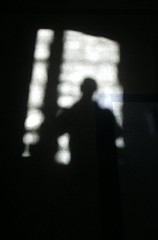nichts 0.6
If the conjectures of Sir William Jones, relative to the inscriptions found at Mongheer, and on the pillar at Buddal, be well founded, then the governing power on the banks of the Ganges, as late as about the time of the birth of Christ, was of the sect of Bhoodha. The Brahmens indeed had then introduced themselves into Hindustan, and had obtained lands, and even the rank of prime minister to the great Rajah: but they had not persuaded him to change his religion; a change which when accomplished, proved equally destructive to the prince, and to the people. However idle and ridiculous the legends and notions of the worshippers of Bhoodha may be, they have been in great measure adopted by the Brahmens, but with all their defects monstrously aggravated: rajahs and heroes are converted into gods, and impossibilities are heaped on improbabilities. No useful science have the Brahmens diffused among their followers; history they have totally abolished; morality they have depressed to the utmost; and the dignity and power of the altar they have erected on the ruins of the state, and the rights of the subject. Even the laws attributed to Menu, which, under the form in use among the Burmas, are not ill suited for the purpose of an absolute monarchy, under the hands of Brahmens have become the most abominable and degrading system of oppression, ever invented by the craft of designing men.Buchanan, Francis. „On the Religion and Literature of the Burmas“, Asiatick Researches 6 (1799), 163-308, p. 166f.


0 Comments:
Post a Comment
<< Home